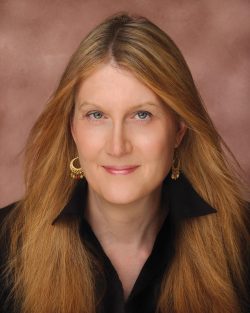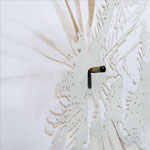Jenny Boylan ’80: In Her Own Words

Nobody says it better than author Jenny Boylan, herself. Below, she elaborates on great authors, the role of literature, Richard Nixon, and what it means to express one’s self openly in a time of political and cultural divisiveness.
You often write about love in such a hopeful way. Does the current cultural moment ever give you pause?
Jenny Boylan: I believe grace and compassion are still ways of expressing ourselves in the world even when our hearts are broken. They probably remain the best ways. They say love trumps hate, but I don’t know that love destroys hate. There’s probably always going to be hate in the world. The question is how do we respond to it? It’s really easy to use vitriol. I do it on Twitter all the time. I have a column in The New York Times this very day that’s about the subject. It’s natural to respond that way when people come at you. And it’s human. But it doesn’t make the world any better. The way we make the world better is by loving each other and trying to understand the humanity in other people, even people who seem to be doing their damndest to wipe us out.
Are there other authors you feel do that especially well?
JB: I don’t know that there are a lot of people doing that work. Often now we go to art to find someone who can express our rage. The age we live in now is so obscene that we don’t even have words to express the anger and fury that we feel. But George Saunders would certainly be at the top of the list. Roxane Gay is pretty good at describing the horrors of some of the things that can happen to people but also in trying to free yourself of hatred, which in the end can destroy you. In the field of memoir, nobody’s better at this than Mary Karr—her three great books each respond to acts of abuse or addiction or loneliness with love and, in her case, faith. And I think Jennifer Egan’s work does that in the same way, especially A Visit from the Goon Squad, although that book is a little more abstract.
Do you feel literature has a responsibility to speak to readers in that way?
JB: A lot of great literature is wrecked for us by the fact that we’re forced to encounter it in high school and college. Every book has a moment when it really speaks to you. The Great Gatsby never meant anything to me until I was in my 40s. Here’s a book that’s telling you about the perils of self-invention—“there’s a true self that you can’t get away from, and if you invent an alternate one, you’ll suffer.” But in high school and at Wesleyan, you’re trying on different identities at all times. It’s hard to express ourselves because often we don’t know ourselves. When people say “Be yourself!” as if who we are is obvious? I think for most of us “Who am I?” remains unanswered for a long time and that answer changes on us over time. It wasn’t until I hit 40 and was changing so many things about my life that Gatsby hit me like a ton of bricks. On the other hand, I read The Lord of the Rings at 15 years old and it made a huge impact—not only because I read it before the movies came out, but because it was exactly the perfect fantasy world for me in the early ’70s when I was a hippie. If I read it now, I’d think “What the heck is this, a magic ring and no women?”
What inspired you to write about your dogs? What made you think this is something others would care to read about?
JB: When people see that Jenny Boylan is going to talk about love, they’ll roll their eyes. But why? Why is the most important thing we have to do here, which is to love each other, so gross? Part of it is our language isn’t good enough. It’s been hijacked by Hallmark and saccharine movies. But dogs give us a path. You see that wagging tail and your sense is, “Well, I can go to pieces here.” You see the meanest people in the world do that. A friend of mine worked landscaping for Richard Nixon after his impeachment. He’s trimming hedges or something and suddenly out comes old Richard Nixon and he’s got a dog. Next thing you know, Nixon is down on his knees saying, “Who’s a good boy? Aren’t you my little angel?” It breaks my heart, but I think we all have a little Richard Nixon inside of us. We have so much love inside of us and nowhere to express it. And that’s where dogs come in.
Read more about Boylan in this issue’s cover story, and in an excerpt about her new book, Good Boy: My Life in Seven Dogs.


